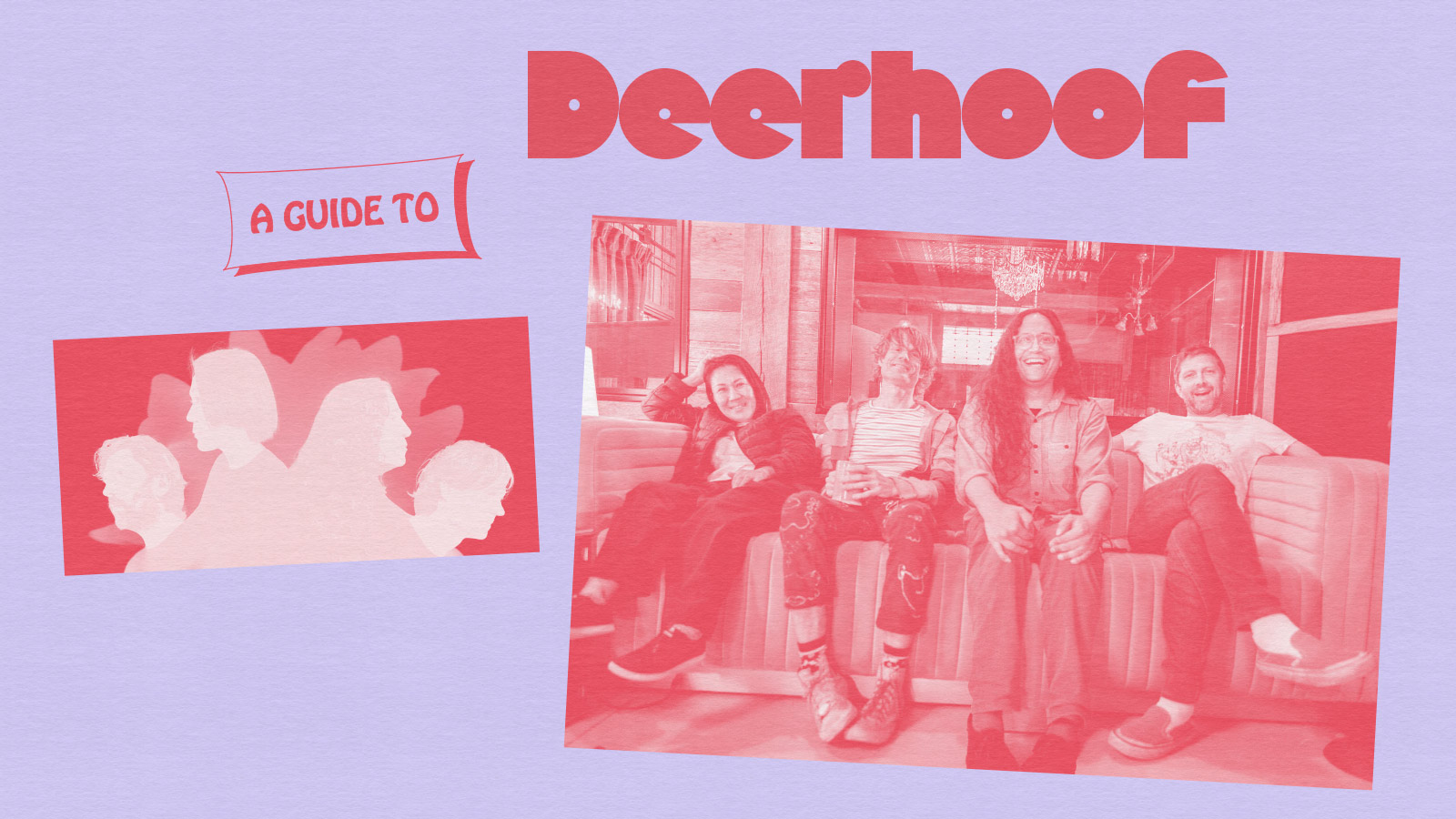
A conversation with Deerhoof founder and percussionist Greg Saunier is as likely to touch on French writer and philosopher Édouard Glissant’s concept of opacity and Naomi Klein’s The Shock Doctrine as it is on Beck’s early album chronology and Melvins’ drummer Dale Crover’s technique. Saunier retains an encyclopedic knowledge of not only Deerhoof’s history but of the social, cultural, and political forces that were at play when the band were composing their albums.
Speaking of encyclopedic, a whole collection of volumes could be written about each of Deerhoof’s albums with lengthy individual entries that delve into the philosophy and creation of each song. Using a consensus approach to song crafting, they strive for a balance of voices between Saunier, bassist and singer Satomi Matsuzaki, and guitarists John Dieterich and Ed Rodriguez on each album.

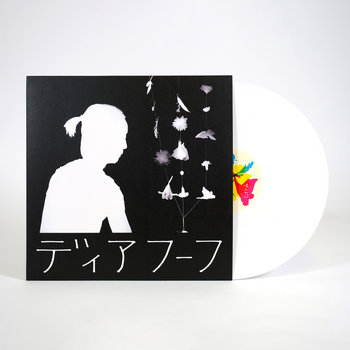



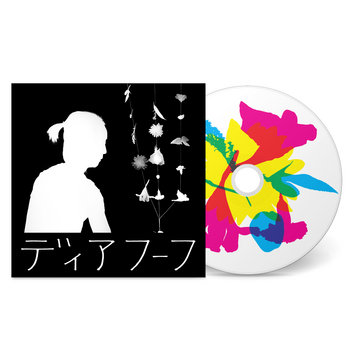

Vinyl LP, Cassette, Compact Disc (CD)




“We were always trying to write music that we thought everyone would like, and it’s the best that we can do. People say that music comes out a bit off-center or strange or underground. It’s not really on purpose. It’s like a bad imitation of mainstream music. We’re, like, a little bit confused,” Saunier says.
For a band that has sustained a consistent artistic and musical output since Saunier and original bassist Rob Fisk were invited to perform at the inaugural Yoyo A Go Go festival in Olympia, Washington, every album is a “concept” album and every album is an anti-war album. While the records can seem accidentally prescient by the time they’re released, it’s really a result of Deerhoof tuning in less to what other bands are doing and more to what’s happening in their world and the world.
Case in point: They were putting the finishing touches on Future Teenage Cave Artists at the beginning of 2020. An album that imagines life in a post-apocalyptic future, Matsuzaki added an illustration of a virus to the cover art at the last minute. By the time Future Teenage Cave Artists was released in May, everyone was busy unlocking their own inner teenage cave artist and revisiting hobbies from their youth while in lockdown.
Twenty years after making the collective decision to quit their day jobs and devote themselves entirely to being musicians in 2003, Deerhoof is exactly where they want to be. They are content with their current level of success and music is at the center of everything they do. Having self-produced all of their albums in various locales including the front seat of a minivan and a vacant office building on the outskirts of Albuquerque, New Mexico, they are in total command of their own image and output. And through it all, they’ve maintained a steady drumbeat of critiquing systemic oppression.
This year sees both the 20th anniversary re-release of Apple O’ and the release of their first studio-recorded album, Miracle-Level. Here are some selections from their discography that will either get you started on your Deerhoof journey or provide some insight into songs you thought you already understood, with commentary from Saunier.
The Man, The King, The Girl (1997)
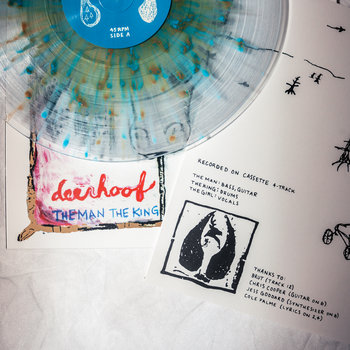
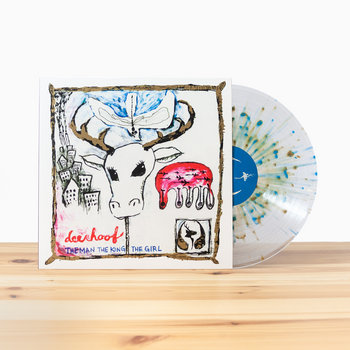
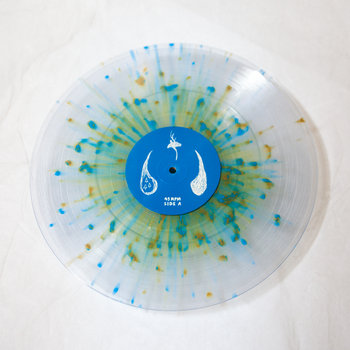
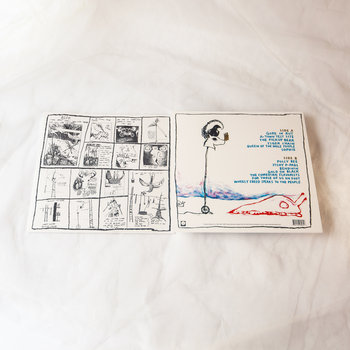

Vinyl LP, Compact Disc (CD)




Holdypaws (1999)
Vinyl LP, Compact Disc (CD)



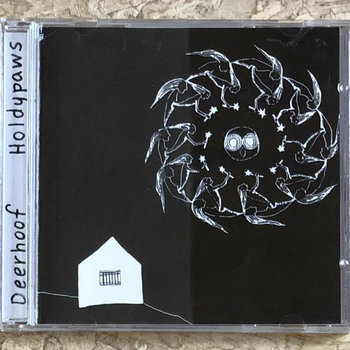
Anyone who was a college DJ in the mid-1990s likely had The Man, the King, the Girl in heavy rotation, as it was a welcome counterpoint to the more self-serious all-dude bands of the era. The band’s second release following 1996’s Dirt Pirate Creed, Saunier says Fisk was inspired by the stripped down sound of bands they saw at Yoyo A Go Go, including headliner Beck who debuted tracks from his then-forthcoming minimalist One Foot in the Grave rather than playing crowd pleasers from Mellow Gold. They took it a step further for their next album, 1999’s Holdypaws.
“We had decided that The Man, The King, The Girl was too kitchen sink—just every instrument we could find, every overdub. But we were trying to just make it very colorful and have a really wide variety of sounds from song to song, always different instruments and different effects and everything,” remembers Saunier. “[For Holdypaws], we wanted to do the exact opposite. We wanted to get rid of all the noise. There was going to be no noise, no improvisation. It was kind of like just a weird self-dare. We had been so used to filling up the empty spaces with noise and improvisation, and we thought, ‘Can we write a song that doesn’t need that?’ And so everything was really strict: always the same two drum sounds—a kick and a snare—always the same guitar setting, and the same bass tone just across every single song with no variation whatsoever.”
Apple O’ (2003)
Vinyl LP
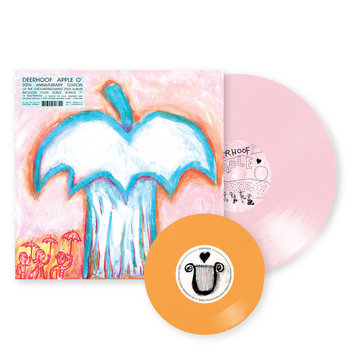
The day after Apple O’ was released on March 18, 2003, U.S. forces invaded Iraq under the false pretense that Saddam Hussein was hiding weapons of mass destruction. Saunier remembers critics at the time coming down on Deerhoof for being cutesy with their “songs about pandas and candy and flowers,” ignoring the fact that the cover art is basically a giant mushroom cloud disguised as an apple core.
“Literally every song on there is about the apocalypse or about species extinction and about conquest and take over and about bombs and about the origin and ending of the species and all that stuff,” he says. Every song also connects to the theme of apples, with the more overt “Apple Bomb” and the covert “Sealed With A Kiss” that’s composed of samples from songs and albums relating to apples.
“None of us played anything on that song,” says Saunier. “It’s all samples. The only recording on there is Satomi’s vocals. The French horns that come in there are taken from ‘Sgt. Pepper’s Lonely Hearts Club Band,’ which I thought was great because it’s both the military theme, but it’s also Apple Records. That’s where those horn sounds come from. The drum sounds are from the beginning of ‘Sgt. Pepper’s Lonely Hearts Club Band (Reprise),’ where it’s just the drum beat and the sort of farm animal sounds that are in there right before at the end of ‘Good Morning Good Morning.’”
Additionally, “there was a song by a Bay Area band that we really loved called Dilute that we used to play with all the time,” he continues. “They were, like, our favorite band, and they had a song called ‘Apple,’ so we used samples of their guitar sounds from that and a whole bunch of other stuff.”
Deerhoof vs. Evil (2011)
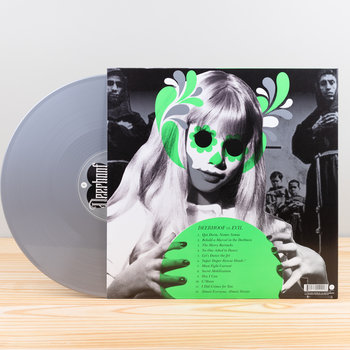

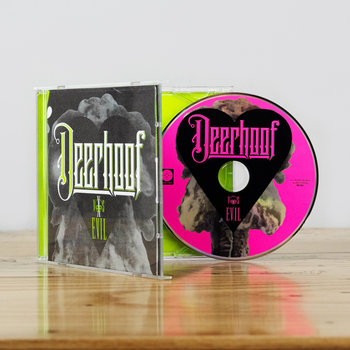


Vinyl LP, Compact Disc (CD)




As with all Deerhoof songs,“I Did Crimes For You” is a Russian nesting doll of stories. The title comes from their first show in Helsinki, Finland, when the promoter who picked them up was driving them from the airport and showing them how she’d hung posters up all around town in places she wasn’t supposed to. “See, I did crimes for you,” she told the band. Saunier immediately jotted the phrase down in the notebook he carries with him to record such sublime moments for future use.
Then they were approached by conceptual artist Adam Pendleton to do the music for his contemporary take on French New Wave filmmaker Jean-Luc Godard’s 1968 film Sympathy for the Devil featuring the Rolling Stones. Called BAND, Deerhoof wrote “I Did Crimes For You” over an eight-hour period as part of the 2010 Toronto International Film Festival. For the remake, Pendleton interspersed historical footage from members of the Black Panthers talking about their philosophy and history.
“The movie was so cool. And the lyrics ‘this is a stick up’ are straight from the Godard skits from his movie. We put those lyrics in as a surprise for Adam, just as a kind of like a little Easter egg for him,” says Saunier.
Breakup Song (2012)

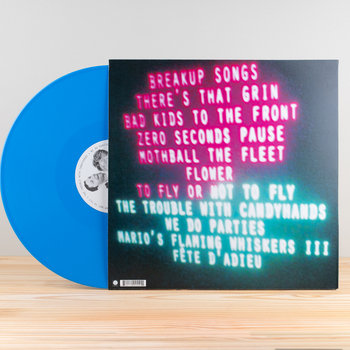
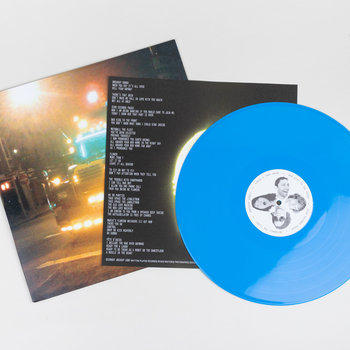
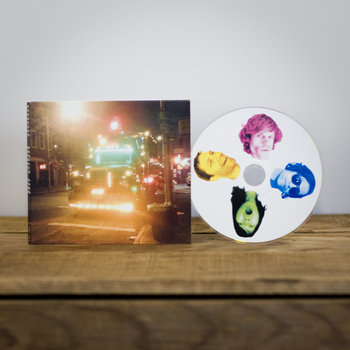
Vinyl LP, Compact Disc (CD)




Not to be confused with “Flower” from 1999’s Holdypaws, or “Flower” from Apple O’ or the recent “Wedding, March, Flower,” that was released as a single from Miracle-Level, this “Flower” was composed on GarageBand by Saunier while riding shotgun in the tour minivan. When asked about the reuse of titles, Saunier says it was inspired by free jazz saxophonist Albert Ayler who had a lot of songs called “Ghosts” and “Spirits.”
“We always just thought that was so cool and so we thought that eventually we should have multiple songs with the same name. And we like pretty things–fruits, flowers, cute animals, stuff like that–so ‘flower’ keeps coming up.”
The Magic (2016)
Vinyl LP, Compact Disc (CD)

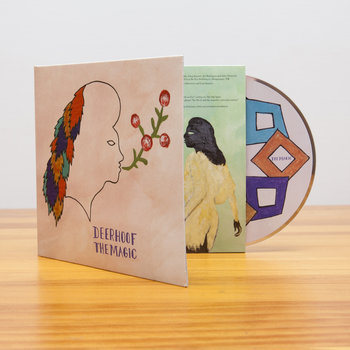
The disco inspired “Life is Suffering” is classic Deerhoof sleight of hand, offering a danceable beat to existential lyrics. The making of the song also illustrates the joy they find and the lengths they’ll go to to make their often unidentifiable sounds.
“My favorite part about ‘Life Is Suffering’ is that John had a contact microphone that I attached to my hi-hats while I was playing the drumbeat for that song. We were recording it and the cable for the contact microphone wasn’t long enough to reach where John was recording on his computer,” says Saunier. “We were renting this office space in the outskirts of Albuquerque where John was living at the time. It was super weird, this really forlorn empty office building. There were almost no tenants in this place. We’re like, okay, we’re just going to move in there for a week and record this record. I was over where the secretary sits and John was over by the window. But the cord from this contact microphone didn’t reach the computer, so we had to put it through a wah-wah pedal and then Satomi started playing the wah-wah pedal that was on the hi-hat. So the whole song, the hi-hat sounds like monsters chewing up the hi-hats.”
Miracle-Level (2023)





Vinyl LP, Cassette, Compact Disc (CD)




Recorded in Winnipeg, Manitoba over a two-week period, Miracle-Level is both Deerhoof’s first studio album and the first sung entirely in Japanese. Saunier chafes at the suggestion that it’s an album about some kind of postponed hope, instead emphasizing that it’s about how we are all current-day miracles—and that despite the efforts of a handful of oppressors to diminish our ability to survive, we keep going.
“I don’t like the industry of hope,” he says. “I don’t like the way hope as a concept has been deployed against the oppressed—’Well, someday we’re on our way. We’re making progress. We’re going to have [solutions] for that for you in a few years.’ It is audacious to dangle hope in front of people in this sort of endlessly deferred utopia. So Miracle-Level is not about how things are going to be great in the future. It’s about how miracles are already occurring all the time and how we all are miracles and that every moment of life is filled with miracles and that we accomplish incredible things against all odds.”







